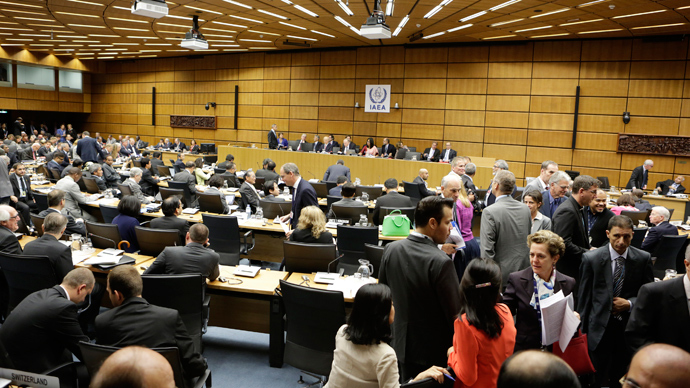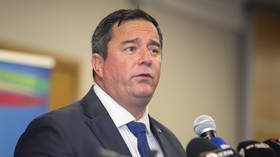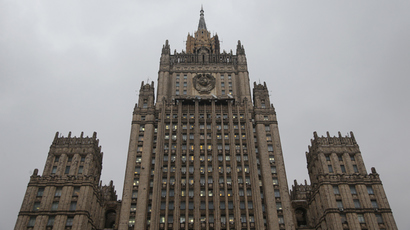Russia, US argue over Moscow’s request for IAEA to analyze risk of Syria nuclear disaster

Russia and the US are in dispute over Moscow’s request for the International Atomic Agency to analyze risks if military strikes hit a nuclear plant near Damascus. The agency said it is considering the appeal, but won’t give an answer “immediately”.
Follow RT's
LIVE UPDATES for the latest on Syria
As a UN atomic agency was meeting on Monday, Russia urged the UN
nuclear watchdog to give an “immediate” answer, stressing
the urgency of the issue. On September, 5 Russia warned that a military strike on Syria could lead to
a nuclear catastrophe if a missile were to hit the so-called
Miniature Neutron Source Reactor (MNSR) near Damascus.
So far, three countries - Russia, Cuba and the US - have spoken
on the subject, but Yukiya Amono, IAEA’s Director General,
declined to disclose details of the discussion.
However, there is no unity in the 35-Member State Board on
whether the International Atomic Agency should comply with
Russia’s request, Amano said.
The US ambassador to the IAEA, Joseph Macmanus, insisted that
carrying out an analysis as Russia requests was not the UN
agency's job and it would exceed the IAEA’s mandate.
"It is our view that requests for comprehensive risk analyses
of hypothetical scenarios are beyond the IAEA's statutory
authority," said Macmanus.
The IAEA "will have to review such a request in light of legal
authorities, mandate and resources and must determine whether
there is a scientific basis for conducting a highly speculative
investigation of this kind," Macmanus was quoted as saying.
The IAEA’s head, Yukiya Amano, said he was not sure if the agency
would be able to come up with an answer to Russia’s request by
the end of the week-long session.
“This is a complicated issue and it has many aspects. It is
also important to listen to opinions of other IAEA member
states,” Amano said.
“I can’t tell when we’ll be ready to answer our friends
[Russia],” he added.
Earlier the IAEA said in a report to member states that Syria had
declared there was a “small amount of nuclear material” at
the MNSR, a type of research reactor usually fuelled by highly
enriched uranium.
The MNSR runs on 900 grams of highly enriched uranium – much less
than the 25 kg that would be sufficient to build a bomb,
according to experts.
However, despite this type of reactor not containing a lot of
nuclear material, it would be enough to cause "a serious local
radiation hazard".














